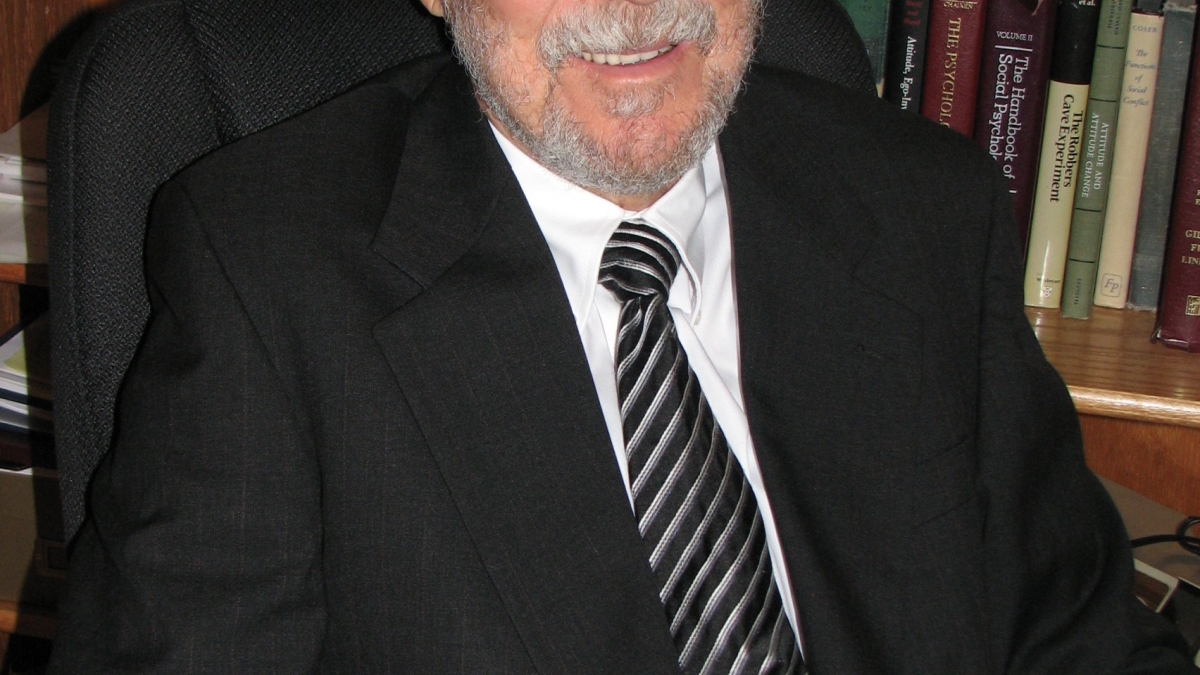As election nears professor discusses 'Radical Distortion'

John W. Reich, an ASU emeritus professor of psychology, recently published his second book, “Radical Distortion: How Emotions Warp What We Hear,” which focuses on research surrounding the decision-making processes of those who endorse extreme beliefs. The book seeks to make “a crucial first step toward creating a more civil society in which the value of a wide spectrum of views can be considered and appreciated.”
In a recent email interview, Reich discusses his background, the subject of his new book, and how Americans might benefit from this research.
Q: Tell me a bit about your background, and how that brought you to this topic.
A: My professional specialty is social psychology, which I taught in the ASU Psychology Department for 41 years before retiring a few years ago. The book summarizes some of the major theories and research findings in social psychology, applied to the issue of social divisiveness, hostile intergroup attitudes, and cognitive distortions as seen every day in our polarized and hostile American public discourse (and around the world as well, unfortunately).
Q: What was your primary motivation for writing this book?
A: [I wanted] to bring to the public’s attention a body of tested and reliable research information on biases in human communication processes; the biasing of our communications lies at the very core of this society’s divisiveness. I did my undergraduate and graduate doctoral training with the founders of this field of research within social psychology, so I have firsthand experience working in the field.
Q: In your book, you talk about something called “toxic speech.” What do you define as “toxic speech,” especially in today’s world?
A: By “toxic speech,” I mean one of two classes of speech/communication. Some speech may be highly prejudiced and even extremist, but that represents no societal problem at all if someone is expressing their own stand on some hot-button issue (such as politics, religion, social issues). I call that type of speech “radical supporting speech,” because the speaker is supporting his/her own particular point of view. For instance, we expect Ford dealers to praise, even extravagantly, Ford cars. Ditto for insurance companies. Naturally expect people to claim superiority for what they believe. That may be noisy, perhaps irritating, but it is not a social problem.
But there is a second and much more dangerous form of hot-emotional advocacy, and that is when the radical speaker is attacking someone else’s beliefs. I call this “radical attacking speech.” An example would be what media people are calling “negative advertisements” when reporting on political speech, particularly during election time. The minute a “radical speaker” starts stating negative things about their “opponent,” then they will be attacked in turn, and then they will retaliate, and so on and on. To attack is to invite retaliation, as we see in hot-button issues. It becomes “toxic” because the entire realm of discussion and discourse becomes poisoned by attack, counter-attack, and retaliatory counter-attack. We are seeing our public discourse degraded by endless hostility in our communications because of the seemingly inevitable exchange of hostilities.
Q: You go on to say in your book that such radical speech can affect the public’s ability to form objective judgments. How does this happen?
A: This radical and hostile negativity is poisoning the public because such polarizing speech receives widespread coverage by the media. Research is showing that the public is not as polarized as the leaders of the public media and the political parties who thrive on polarization. But the extremism broadcast by the national media gets adopted by the individual exposed to it.
This occurs through what I call in the book “the endorsement process.” It is a step-wise process: The individual is exposed to radical speech by impressive, colorful and well-paid public media “experts” and becomes influenced by it. Once they endorse that speech as their own, then they become “radical hearers” – my term for people who adopt the extremist opinions expressed by the public figures they want to emulate.
Q: It seems like the book is pretty timely, especially as the United States is leading up to an election. How can the nation benefit from the research that you present in this book?
A: My hope is that people will see the dangers of radical speech and the dangers of adopting the judgment mindset of radical hearing, and will reject such extremism. In fact, l use the very same research findings revealing the effects of bias on our beliefs, and then turn those same findings into seven steps which, if followed, will reduce the toxic effects of radical speech.
It is up to the individual to learn the dangers of radical hearing and then change their own behavior by applying the seven systematic steps in their own life. We are all in this together, and it is up to the individual to reject extremism if we are to regain our sense of national unity, now seriously undermined by extremists.
“Radical Distortion: How Emotions Warp What We Hear” is available now from Prometheus Books at http://www.prometheusbooks.com/.

